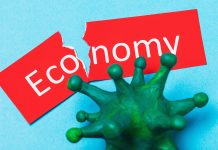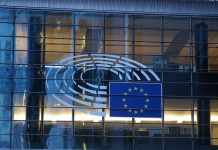Here, Open Access Government looks into European Commissioner Paolo Gentiloni’s priorities for strengthening the EU’s Economy while also putting citizens first, particularly in a time of crisis
Paolo Gentiloni has been the European Commissioner for Economy in the von der Leyen Commission since 1 December 2019 and previously he was the 57th Prime Minister of Italy from 2016 to 2018. His current responsibilities consist of further deepening the Economic and Monetary Union, ensuring the application of the Stability and Growth Pact, using the full flexibility allowed in the rules to support investment which can help achieve a more growth-friendly fiscal stance in the euro area and stimulate investment, while safeguarding fiscal responsibility, among others.
Perhaps the most relevant of these responsibilities entrusted by President von de Leyen upon his acceptance of the position as Commissioner would be to “ensure Europe increases its resilience to shocks and should ensure stability in case of another economic downturn. Current high debt levels are a source of risk and a constraint on governments offering macroeconomic stabilisation when needed. You should look at how to address debt levels in both the public and the private sector.”1
COVID-19 pandemic
It goes without saying that the COVID-19 pandemic is acting as a major shock for both global and EU economies, with severe socio-economic consequences, as the EU’s economy will “experience a recession of historic proportions this year.”2 In order to achieve economic recovery for each Member State, it will depend not only on the evolution of the pandemic in each country, but also on the structure of their economies and their capacity to respond with stabilising policies. Given the interdependence of EU economies, the dynamics of the recovery in each Member State will also affect the strength of the recovery of other Member States.
Economic plans
During a speech in March of this year, Commissioner Gentiloni explained the human-centric focus of the Commission’s plans for the economy throughout the COVID-19 pandemic. “The priority of the European Commission is to save as many lives as possible. Nothing matters more. At the same time, it is clear that this health crisis is set also to take a severe toll on our economies. And let me be clear that that is also a very human consideration: behind the economic data and market indicators that we see flashing red are the jobs and livelihoods of our citizens.”3
He further stated that the immediate priorities are:
• Ensuring health systems have all the resources they need – we all need to do whatever it takes to make this happen.
• Providing liquidity for affected companies.
• Protecting people’s jobs and incomes.
To achieve these goals, the Commission will defend the single market and ensure solidarity, mobilise the EU budget and the EIB groups, and use the full flexibility of the fiscal framework. Furthermore, liquidity facilities announced – which include public guarantees and delays in tax collection – add up to at least 10% of GDP.
Financial support for citizens
From March to May, the Commission has taken significant decisions in this direction by allowing Member States to use EU funds in an extremely flexible way, adapting state aid rules and suspending, with the general escape clause, the Stability and Growth Pact. Furthermore, the initiative of the European Investment Bank Group has been presented, with its €200 billion in financing for companies, focused on small and medium-sized enterprises (SMEs) and the ESM ‘Pandemic Crisis Support’, is now available and ready for use. Workers are at the forefront of the Commissioners’ concerns, and the SURE scheme (Support to mitigate Unemployment Risks in an Emergency) unlocks €100 billion to help workers keep their jobs, ensuring that no part of Europe is left alone.
In regards to the economic situation, Gentiloni has said: “Europe is experiencing an economic shock without precedent since the Great Depression. Both the depth of the recession and the strength of recovery will be uneven, conditioned by the speed at which lockdowns can be lifted, the importance of services like tourism in each economy and by each country’s financial resources. Such divergence poses a threat to the single market and the euro area – yet it can be mitigated through decisive, joint European action. We must rise to this challenge.”4 There is a clear commitment to Europe as a whole in his statement, and the Commission is continuing to work towards the aims outlined above and will take whatever further coordinated and decisive policy action is necessary.
References
1 https://ec.europa.eu/commission/commissioners/sites/comm-cwt2019/files/commissioner_mission_letters/mission-letter-paolo-gentiloni_en.pdf
2 https://ec.europa.eu/commission/presscorner/detail/en/IP_20_799
3 https://ec.europa.eu/commission/presscorner/detail/en/SPEECH_20_478
4 https://ec.europa.eu/commission/presscorner/detail/en/IP_20_799
Open Access Government














